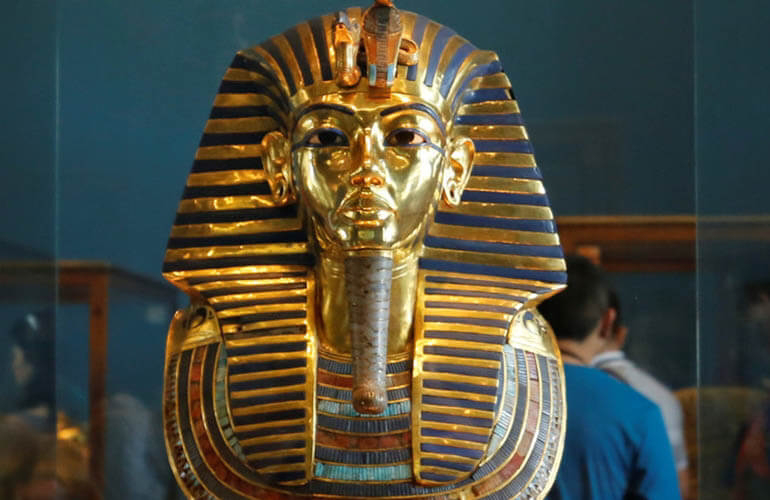THE EGYPTIAN PHARAOHS
The ancient Egyptian civilization is one of the most fascinating and mysterious civilizations in history. At the center of this civilization were the pharaohs, the powerful rulers who were believed to be gods on Earth. These pharaohs played a significant role in the history and culture of ancient Egypt, and their legacy has left an indelible mark on the world. In this blog, we'll take a closer look at the pharaohs of ancient Egypt, their history, and their impact on the world.
The pharaohs of ancient Egypt were the kings and queens who ruled over the land of Egypt for thousands of years. They were believed to be the divine representatives of the gods and were considered to be living gods themselves. The pharaohs were not only political leaders but also religious leaders, responsible for the spiritual well-being of their people. The pharaohs were the embodiment of Egypt's power, and their reigns were marked by grand building projects, elaborate ceremonies, and impressive military conquests.
The history of the pharaohs dates back to the early dynastic period, which began around 3100 BCE. The first pharaoh was Narmer, who unified Upper and Lower Egypt and established the first dynasty. After Narmer, there were 30 dynasties of pharaohs, each with their unique history and contributions to Egyptian society. Some of the most famous pharaohs in history include Khufu, who built the Great Pyramid of Giza, Hatshepsut, who was one of the few female pharaohs in history, and Tutankhamun, whose tomb was discovered in 1922 by Howard Carter.
The pharaohs of ancient Egypt had absolute power over their people and were seen as the ultimate authority in all matters. They were responsible for maintaining order and stability in the land, and their decisions had far-reaching consequences for the entire kingdom. The pharaohs were also the chief priests of Egypt, responsible for ensuring the gods were appeased, and the people were spiritually fulfilled.
The pharaohs were known for their grand building projects, which included massive temples, pyramids, and other impressive structures. The pyramids, in particular, are perhaps the most famous structures built by the pharaohs, and they continue to amaze people to this day. These enormous structures were built to serve as the pharaoh's tomb and were intended to ensure their safe passage into the afterlife. The pyramids were built using an enormous amount of labor, including thousands of workers who were responsible for quarrying the massive stones used in construction.
The impact of the pharaohs on the world is undeniable. The ancient Egyptian civilization left a lasting legacy on architecture, art, religion, and philosophy. The pharaohs' elaborate ceremonies, impressive architecture, and military conquests continue to inspire awe and admiration to this day. The ancient Egyptian civilization was also one of the first civilizations to develop a form of writing, which helped preserve their history and culture for future generations.
In conclusion, the pharaohs of ancient Egypt were powerful and influential leaders who left an indelible mark on history. Their reigns were marked by grand building projects, elaborate ceremonies, and impressive military conquests. The pharaohs were responsible for maintaining order and stability in the land, and their decisions had far-reaching consequences for the entire kingdom. Today, the legacy of the pharaohs continues to inspire people around the world, and their contribution to civilization remains unparalleled.





.png)
Comments
Post a Comment